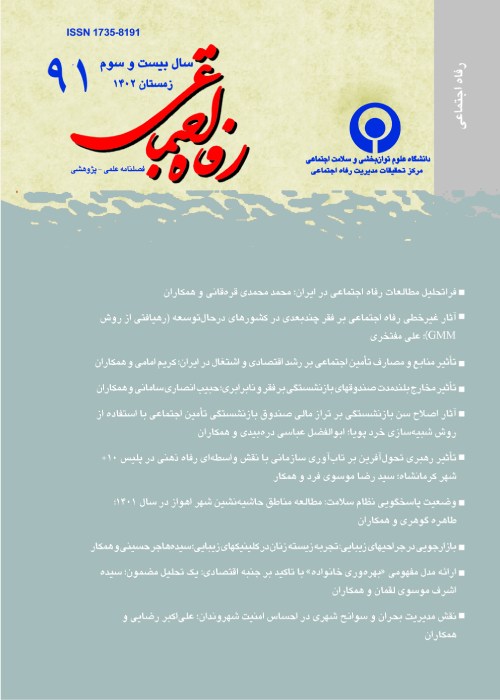Stigma and media content; Semiotics of radio programs related to homelessness
Homelessness is one of the important issues of urban life in the last two decades.. It seems that society's concerns for the problem of homelessness and not finding a solution to solve it have led to turning to stigma: The violence against the homeless, the criminalization of homelessness, the invisibility of the homeless and using terms such as vagabond and drug addict. Media coverage plays an important role in the stigmatization and de-stigmatization of homelessness.
To study the status of stigma (components, management and types of stigma) in radio programs related to homelessness, six programs were analyzed based on semiotic analysis, as one of the widely used methods in qualitative research of media texts.
The findings show that addiction and inappropriate appearance are highlighted as a "mark" and addict as a "group labeling" of homelessness. The stigma of "peril" is very prominent in the programs with the presence of informants and experts, and various types of harm, including crime and theft, the spread of addiction, disease, and identity less children, and the destruction of the spirit of society are attributed to this group. Stigma management in programs with the presence of homeless people is through "self-disclosure" and "masking", while stigma management in programs with the presence of informants and professionals is through two methods of "hiding" and "displacement".
Despite the fact that in radio programs, the issues and problems of homelessness are not raised much, and the problem of addiction is mostly highlighted, and the issues related to poverty and the form of residence are not considered, but a space is provided for the homeless to talk about their personal experiences and for organizations to introduce their services. These conversations help to fade some stigmas and help people get to know each other more.
homelessness , radio , Stigma
- حق عضویت دریافتی صرف حمایت از نشریات عضو و نگهداری، تکمیل و توسعه مگیران میشود.
- پرداخت حق اشتراک و دانلود مقالات اجازه بازنشر آن در سایر رسانههای چاپی و دیجیتال را به کاربر نمیدهد.


